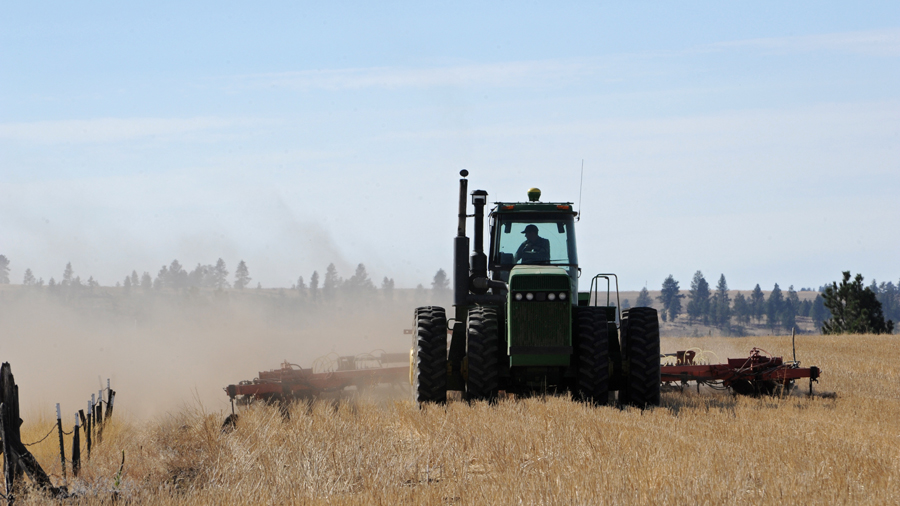By Steve Hinds, Senior Business Development Manager, CHS Refined Fuels Marketing from the Cenexperts blog

Incompatible people are often said to mix like oil and water. But if you really want to talk about an unfortunate combination, look no further than fuel and water. Water in a machine’s fuel line can be a one-way ticket to trouble.
The good news about water damage is it’s preventable. Here’s what you need to know about diesel fuel water contamination and how to keep it from sinking your operation.
Top problems caused by water in diesel fuel
From reduced performance to major engine problems, water contamination is a serious issue for diesel equipment owners. Here are the most common problems that can occur when water contaminates fuel.
- Microbial growth: Water is a hotbed for microorganisms. And a microbial invasion can spell disaster for a piece of equipment. These microscopic parasites can plug fuel pumps, injectors and filters, potentially leading to equipment breakdown.
- Fuel filter distortion: Today’s high-performance farm machines have tight tolerances, so fuel filters are essential for keeping impurities out of engines. But if a fuel filter is exposed to water, it becomes distorted, allowing impurities to pass through into the engine.
- Corrosion: Last but not least, corrosion is another major problem that can result from water-contaminated diesel fuel. Metal parts, from fuel tanks to injector pumps, can rust if they come into contact with water.
How to keep water out of diesel equipment
Your fuel system is bigger than just the fuel line inside your equipment. To keep water out of your machinery, it’s important to tackle the problem at its source: your bulk fuel tank. Here are two easy preventive actions.
- Perform regular bulk tank maintenance: Keep your operation running smoothly by establishing a bulk tank maintenance routine. A few easy things you can do regularly include draining and cleaning your tank, cleaning the pump screen and changing pump filters seasonally.
- Collect a tank sample: Keep a lookout for water in your bulk tank by taking occasional tank samples, which give you a valuable snapshot of the conditions inside your tank. To learn more about tank sampling and to purchase a tank sample, contact your local Certified Energy Specialist.
Choose fuel that fights water from the start
One of the simplest ways to protect your operation from water damage is also one of the most overlooked: fuel selection. Even for experienced farmers, it can be easy to fall into thinking that fuel is fuel — but the truth is, all diesels are not created equal.
Switching to a high-quality fuel like Cenex Ruby Fieldmaster® premium diesel can go a long way toward protecting your operation from water damage. That’s because Ruby Fieldmaster contains an industry-leading additive package, including powerful demulsifiers that keep water out of equipment.
Demulsifiers work by separating water from fuel, and they’re active even while the fuel sits inside your bulk tank. Thanks to these demulsifiers, extracted water sinks to the bottom of the tank and collects safely beneath the fuel — keeping water from ever entering your equipment in the first place.
With a few simple precautions, fuel contamination is easy to prevent. Cut corners, though, and it could leave your operation…dead in the water. Start protecting your operation today with Premium Diesel from your local Cenex location.


